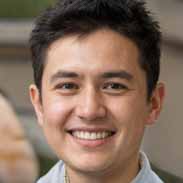Human Learning Chapter 6 (Ormrod) – Flashcards
Unlock all answers in this set
Unlock answersquestion
How people perceive, interpret, remember and in other ways think about environmental events
answer
Cognitive Processes
question
general theoretical perspective that focuses on the mental processes underlying learning and behavior
answer
Cognitive psychology
question
purposive behaviorism; 1. Learning is an internal rather than external change 2. Behavior is purposive 3. Expectations affect behavior 4. Learning results in an organized body of information
answer
Edward Chace Tolman
question
Tolman's term - learning that happens but it isn't until it is reinforced that we see a behavioural change
answer
Latent Learning
question
Tolman's theory of learning; he stressed the goal-directed (purpose) nature of behaviour
answer
Purposive Behaviorism
question
Tolman proposed that rats and humans develop these; they learn where different parts of the environment are situated in relation to one another
answer
Cognitive Maps
question
School of psychology the emphasizes the importance of organizational processes in learning, perception and problem solving; Gestalt means "structured whole"
answer
Gestalt Psychology
question
(optical illusion) When two lights blink on and off sequentially at particular rate they often appear to only be one light moving fast
answer
Phi Phenomenon
question
Experiment done with chickens which highlights the importance of interrelationships among stimuli
answer
Transposition
question
People tend to perceive as a unit those things that are close together in space
answer
Law of Proximity
question
People tend to perceive as a unit those things that are similar to one another
answer
Law of Similairity
question
People tend to fill in the missing pieces to form a complete picture
answer
Law of Closure
question
The Gestalt view that people always organize their experience as simply, concisely, systematically and completely as possible
answer
Law of Pragnanz
question
What we remember afterwards of a picture and it follows the law of Pragnanz (they tend to be simpler, concise, systematic, and complete)
answer
Memory Traces
question
arranging the problem elements in various ways
answer
restructuring
question
Learning a set of items in a particular order
answer
Serial Learning
question
Learning pairs of items
answer
Paired-associate Learning
question
People typically learn the first few items and last few items easier and quicker then those in the middle when doing serial learning
answer
Serial Learning Curve
question
The tendency to remember and learn the first few items in a serial learning curve
answer
Primacy Effect
question
The tendency to remember and learn the last few items in a serial learning curve
answer
Recency Effect
question
When you learn material to mastery and then practice it for additional study trials
answer
Overlearning
question
Spreading study time out over several occasions
answer
Distributed Practice
question
Study time occurs all at once
answer
Massed Practice
question
When learning 2 sets of paired associates in succession and the learning of the second makes you forget the first
answer
Retroactive inhibition
question
When learning 2 sets of paired associates in succession and you have trouble remembering the second
answer
Proactive Inhibition
question
learning one set of information may actually improve the recall of information learned at another time
answer
retroactive facilitation or proactive facilitation
question
recalling items of a serial learning task in whatever order they prefer
answer
free recall
question
focus on how people think about (i.e., process) the information they receive from the environment—how they perceive the stimuli around them, how they "put" what they've perceived into their memories, how they "find" what they've learned when they need to use it, and so on
answer
information processing theory
question
portrayal of learning more as constructing knowledge rather than directly acquiring it from the outside world
answer
constructivism
question
focuses on the process of construction occurring separately within each learner
answer
individual constructivism
question
encompasses theories that focus on how people work together to create new knowledge, perhaps at a single sitting or perhaps over a period of many years
answer
social constructivism
question
importance of the immediate physical and social environment; context
answer
contextual theories



